
The federal government ‘sees a long-term future for the oilsands.’ Here’s what you need to know
An internal document obtained by The Narwhal shows how the natural resources minister was briefed...
This story is a collaboration between The Narwhal and The Trillium.
Ryan Amato was the “driving force behind a flawed process.” He was “largely alone and undirected.” He was “drinking from a firehose.”
Most of what the public knows about Amato, the political staffer at the centre of the Doug Ford government’s Greenbelt scandal, has so far come from two provincial watchdogs. He played both engineer and conductor of efforts to remove sections of protected Greenbelt land in order to allow development, the auditor general and integrity commissioner found.
Premier Doug Ford reversed the Greenbelt decision Thursday, calling it a “mistake” and vowing to restore protections permanently. Key questions remain unanswered, however — about who Amato is, how he ended up in charge of such a pivotal project and why the Ontario Provincial Police punted its review of a possible investigation into the Greenbelt changes to the RCMP shortly after Amato’s involvement was made public.
Now, The Narwhal and The Trillium have assembled the fullest portrait to date of Amato through public records and information, sources who have come into contact with him over the years and social media postings. That picture shows a staffer who spent eight years in behind-the-scenes jobs in conservative politics, whose closest family members have ties with the head of the Ontario Provincial Police and who personally faced Ontario’s housing affordability crisis, while the government rolled out policy changes it says were aimed at tackling it.
Before his resignation, Amato was the top staffer to Steve Clark, the former housing minister who ultimately brought forward the changes to Ontario’s Greenbelt last fall. In a decision that is now moot, the government dropped protections from 7,400 acres (3,000 hectares) of protected land, much of which was owned by developers with ties to Ford and the Progressive Conservatives.
Amato stepped down on Aug. 22, less than two weeks after the province’s auditor general concluded he had given “preferential treatment” to that group of well-connected developers. Clark, his former boss, announced his own resignation on social media on Labour Day.
In a statement, Amato declined to answer detailed questions from The Narwhal and The Trillium about his parents’ connection to the Ontario Provincial Police and his past work in politics.
“To the best of my understanding from what has been reported in the media, this entire matter is — or may be — under investigation,” Amato wrote.
“While I am concerned about the innuendo that underlies some of your questions and the accuracy of your research, it would be inappropriate for me to make any comment at this time.
“I have fully co-operated with investigations by both the auditor general and the integrity commissioner and I expect to provide a more fulsome response once I am fully exonerated of any impropriety. In the meantime, I would ask that you respect my family’s privacy.”
Amato did not answer when asked what was inaccurate in The Narwhal and The Trillium’s line of questioning.
In a resignation letter obtained by multiple news outlets, Amato wrote that his role in the Greenbelt changes have been “unfairly depicted.”
“I am confident that I have acted appropriately, and that a fair and complete investigation would reach the same conclusion,” said the letter, which has not been independently verified by The Narwhal and The Trillium.
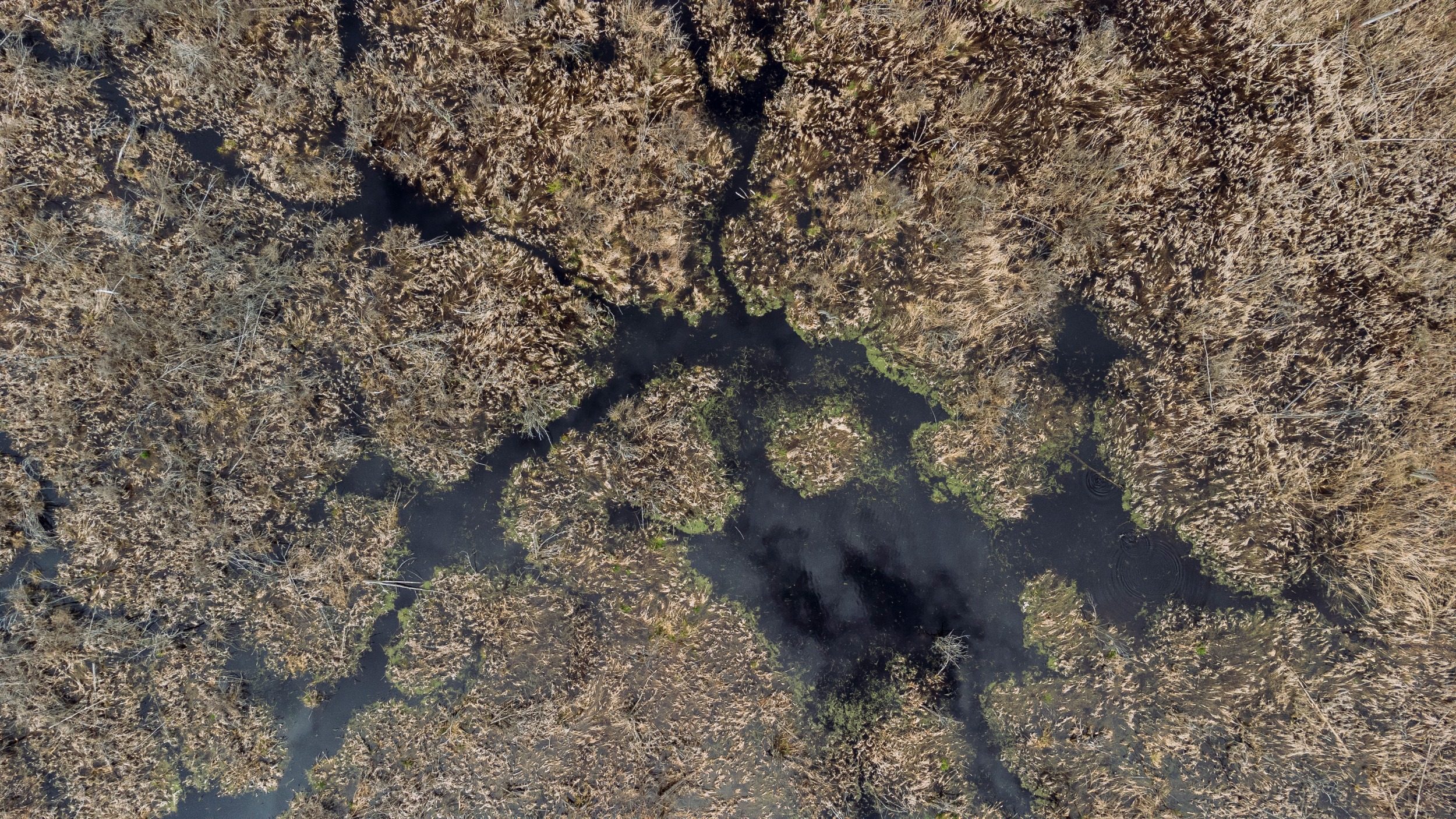
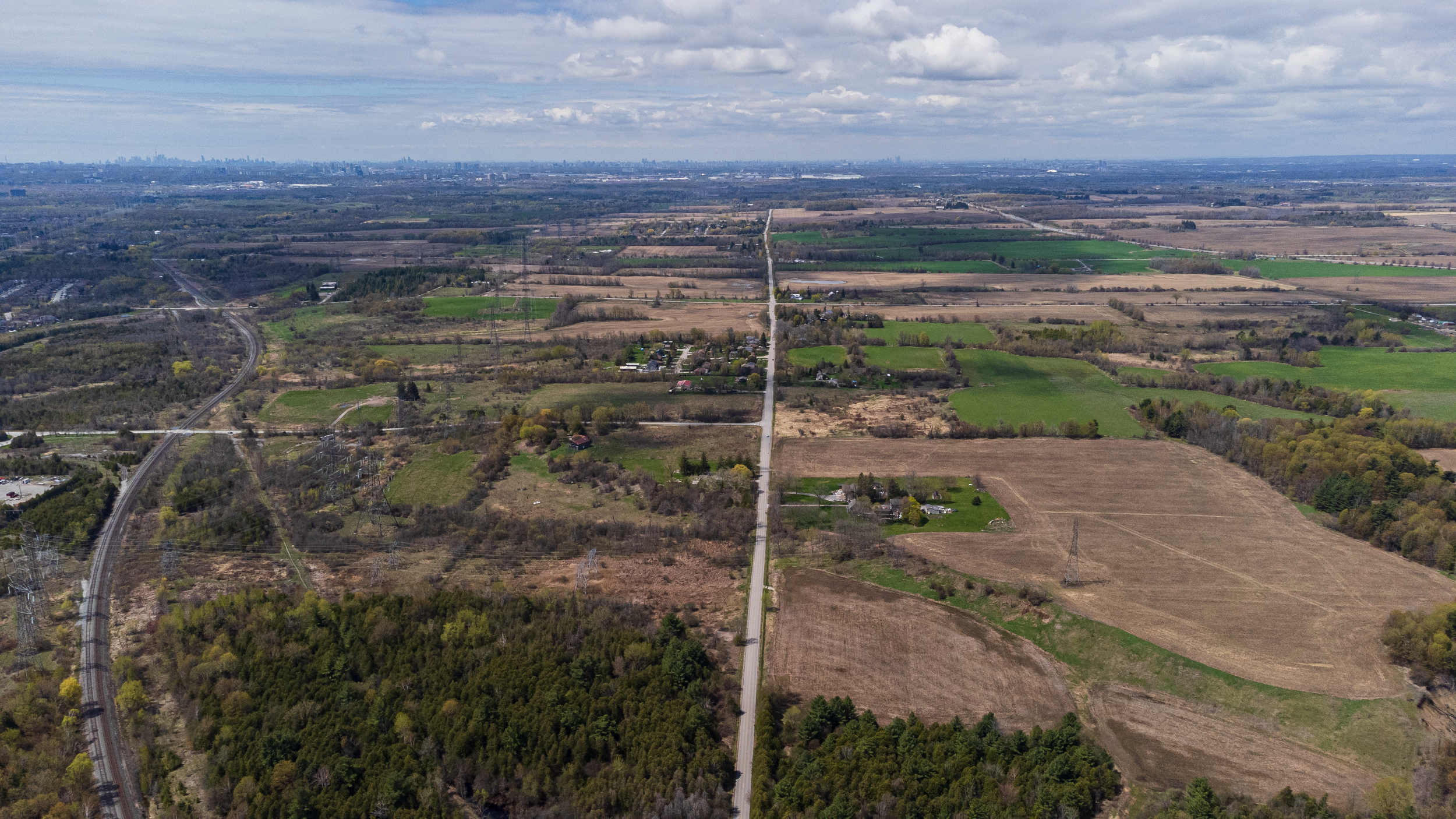
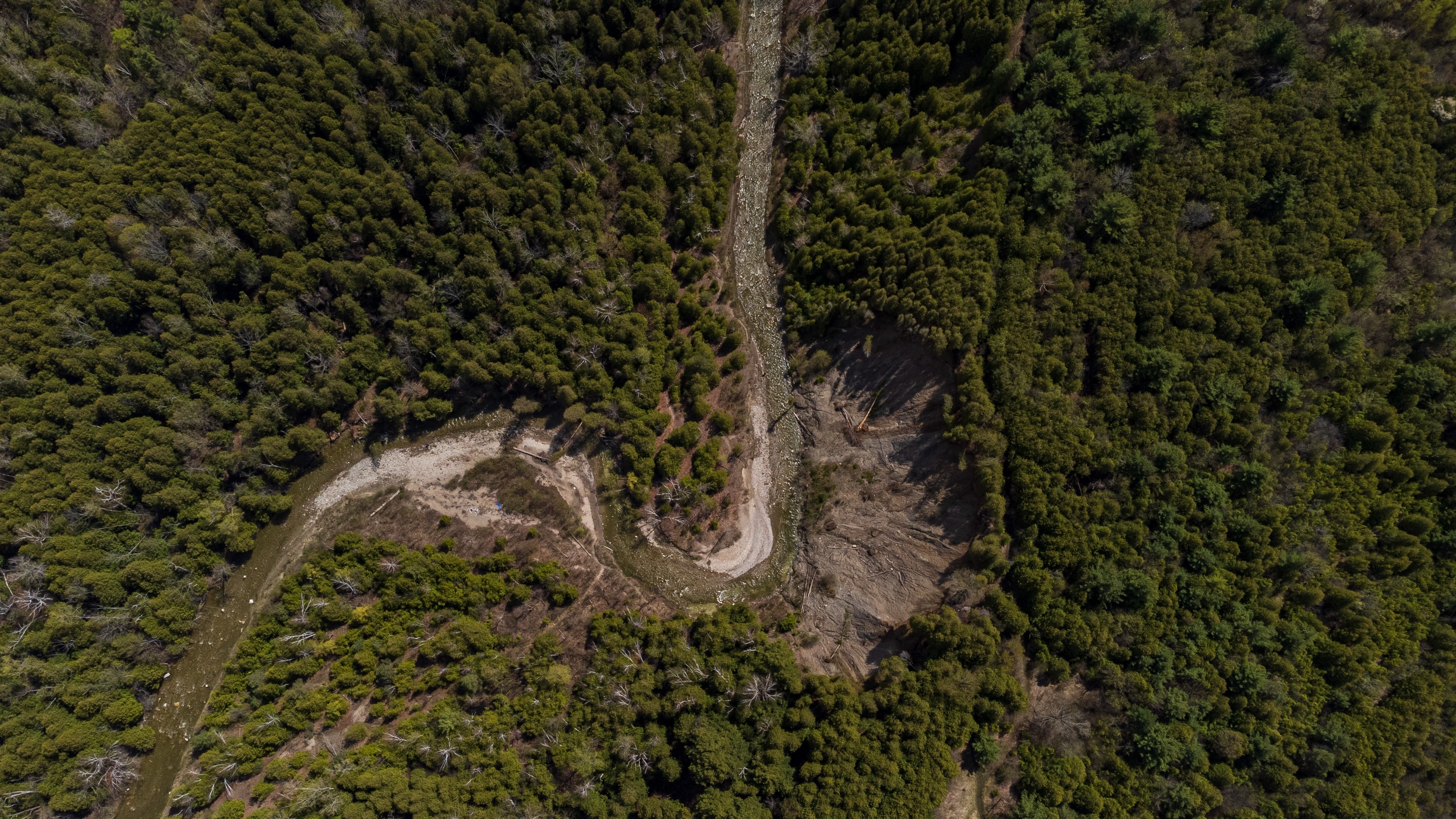
Since at least early January, the Ontario Provincial Police had been quietly reviewing whether to launch an investigation into the government’s removal of land from the Greenbelt.
It isn’t clear how much progress the force made in the months that followed.
In a late-February email obtained by The Trillium, a detective from the provincial police force’s anti-rackets branch wrote investigators hadn’t turned up evidence of anyone committing a crime, nor had they identified any suspects. In the email — sent to an Ontario Green Party candidate and retired legal scholar who filed a complaint and asked for an investigation — the detective said police needed “someone to say that they have information that a government official tipped off developers, took a bribe, in doing so, etc.” and complained that media were not sharing their sources.
About six months later, on Aug. 23, the day after Ryan Amato quit, the provincial police force released a statement saying it had referred its review to the RCMP “to avoid any potential perceived conflict of interest.”
Later that day, the RCMP confirmed investigators had begun assessing whether the Mounties would launch a full investigation. The Ontario Provincial Police never explained the nature of the conflict of interest or why it only discovered the issue months into the review.
Amato does have one clear connection to the provincial police — or two, actually: his parents.
A 1993 birth announcement in the Toronto Star identified Ryan Amato’s parents as Mike and Desiree — matching the names of two people who spent 25 years in the same workplace as Thomas Carrique, the current head of the Ontario Provincial Police.

Carrique and Mike and Desiree Amato all worked for the York Regional Police, a municipal force in the region just north of Toronto. Carrique’s time with the service spanned from 1990 to 2019, when he was appointed commissioner of the provincial force. Mike Amato, who did not respond to a message sent through LinkedIn, worked there from 1987 to 2016. Desiree Amato, who did not answer a Facebook message, spent from around 1985 to at least 2019 in a civilian role with the police service, according to documents published by the York Regional Police.
To confirm these relationships, The Narwhal and The Trillium reviewed public records of the Amatos’ addresses, publicly available photos, including on Ryan Amato’s Facebook account, and employment records for Carrique and Mike and Desiree Amato.
The Ontario Provincial Police confirmed in a statement that Carrique “did have a professional work-related relationship with members of the Amato family,” but said that wasn’t the reason the service decided to refer the review to the RCMP.
Both Carrique and Mike Amato held jobs related to investigations of organized crime while working for the York police. The provincial police did not answer follow-up questions about what the potential conflict of interest might be and whether Mike Amato’s work was a factor.
Carrique reached the rank of superintendent in 2008, according to Ontario’s sunshine list, which makes all provincial government salaries over $100,000 public. Before that, Carrique was officer-in-charge of the York police’s organized crime bureau as well as a special investigation unit liaison officer, his profile on the Ontario Provincial Police Veterans’ Association website says.
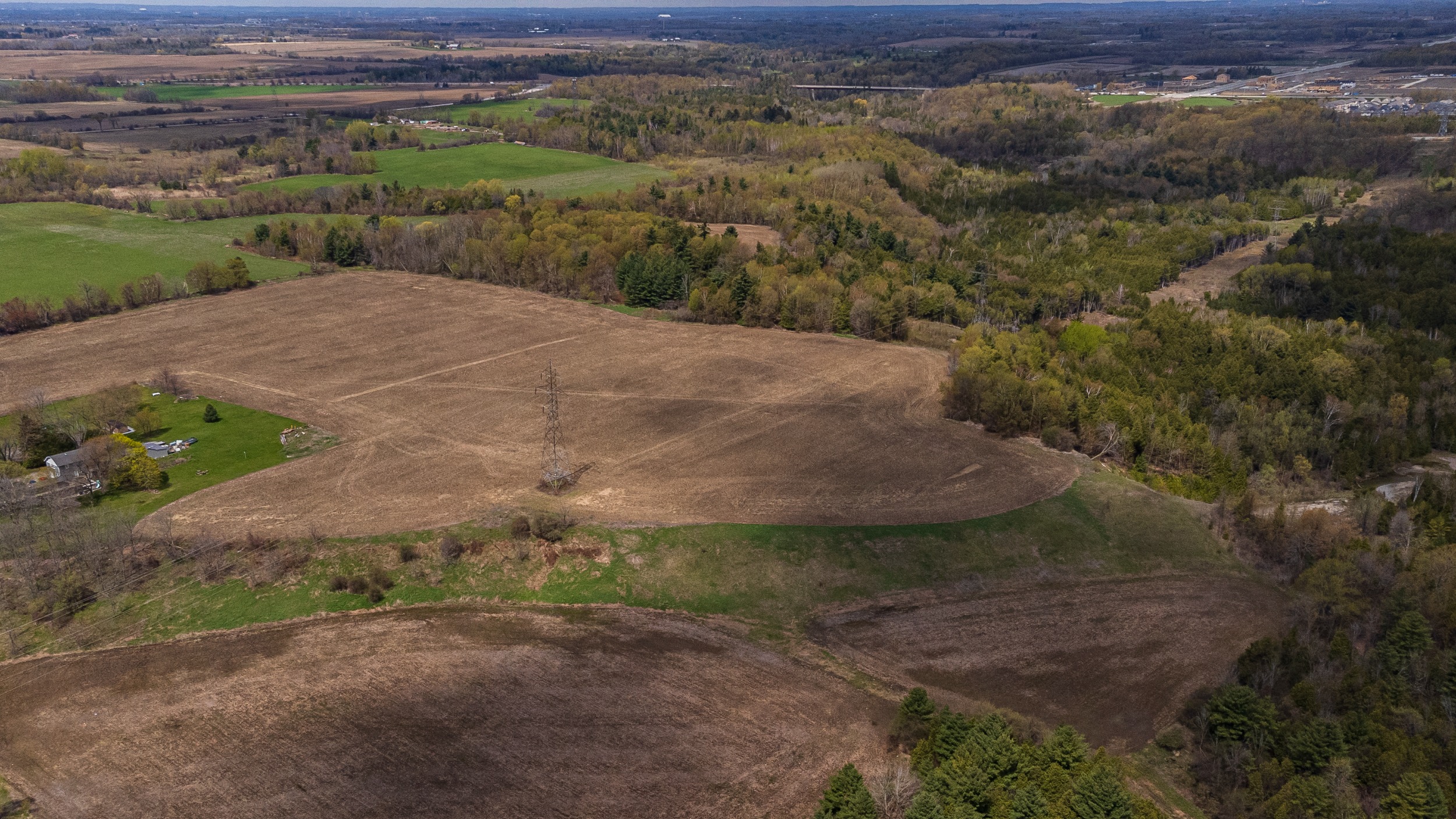
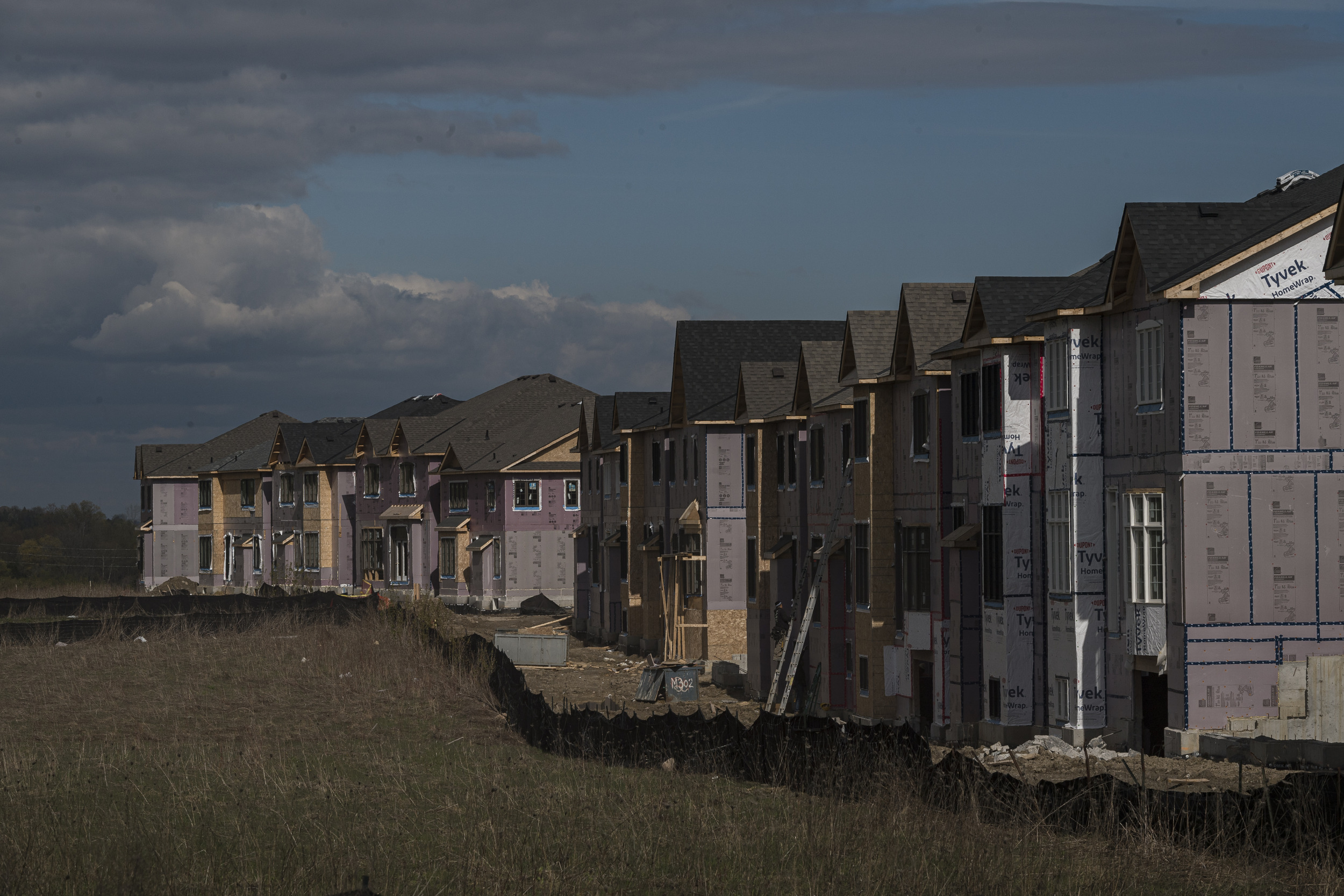
By the early 2010s, Mike Amato had spent most of his more than two decades with the service investigating organized crime, according to testimony he gave the Charbonneau Commission, a Quebec government inquiry into corruption in the province’s development sector. Mike Amato was an expert witness, relaying to the commission in September 2012 his observations of mafia activity in Ontario’s construction industry.
Annual reports covering the later years of Mike Amato’s career with the York Regional Police lay out dozens of investigations the force did in collaboration with other police services, including several with the Ontario Provincial Police.
More recently, in 2019, a former York Regional Police officer named Mike Amato was appointed to an Ontario government council overseeing coroners, an agency reporting to the Ministry of the Solicitor General. He was re-appointed for another three years in 2022.
Carrique was superintendent-in-charge of staff services for York Police from 2008 to 2011. He became deputy chief of administration in 2011 and kept that role until he became commissioner of the Ontario Provincial Police in 2019.
As deputy chief of administration, Carrique oversaw most of the York police’s civilian service members. Desiree Amato and Carrique were both members of the service’s organizing committee for its annual Police Appreciation Night from at least 2013 to 2019.
Other than the Amato family’s connection to Carrique, it’s not clear what the conflict of interest might be. The force’s commissioner is appointed by the Ontario government, which also funds the service. But the provincial police have investigated the Ontario government before, including during the 2010s gas plant scandal.

Another potential issue could be a controversy that played out in the first two years of the Ford government’s term, after the Progressive Conservatives tried to appoint the premier’s friend, Ron Taverner, to the commissioner role. In the end, Taverner removed himself from consideration, the government appointed Carrique instead and Ford was cleared of wrongdoing.
Alok Mukherjee, former chair of the Toronto Police Services Board, said questions about whether the Ontario Provincial Police are capable of independently investigating the Ontario government are an old problem. The circumstances of Carrique’s appointment could have been a second issue, he said, and any relationships between Carrique and the Amato family would have subjected the force to even greater scrutiny.
The question, then, is why the provincial police waited so long to declare a conflict of interest, said Mukherjee, who ran for the federal NDP in the 2019 election.
“They should have punted [the review] to the RCMP much sooner,” Mukherjee said.
“It raises the question of how seriously they took the early allegations or issues they were asked to look at … that’s my speculation, that they did not take the matter with the same seriousness prior to the auditor general’s report.”
The RCMP did not answer specific questions about how its work on the file is progressing.
“While the RCMP recognizes that this issue is a matter of significant interest to Canadians, we will not be providing any further comments or updates in order to preserve the integrity of any ongoing investigation,” the Mounties said in a statement.
The RCMP did not answer whether this statement means the force has officially turned its review of the evidence into a criminal investigation, saying only that “there are no updates at this time.”
It’s unclear how the Ford government’s decision to return land to the Greenbelt might affect the RCMP review.
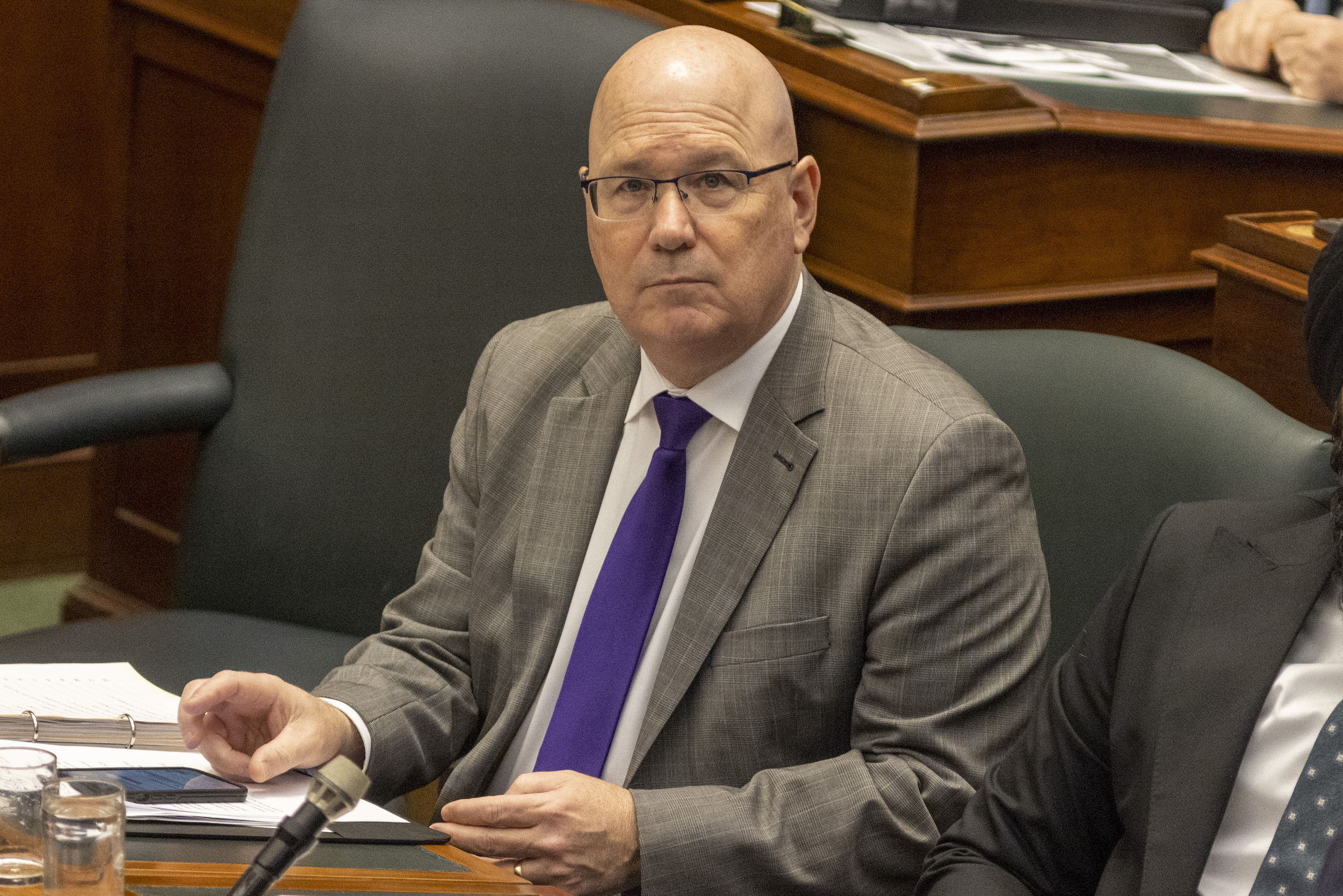

Integrity Commissioner J. David Wake’s report on the Greenbelt painted Ryan Amato, who became Clark’s chief of staff in summer 2022, as a complex figure.
On one hand, Wake found Amato led the Greenbelt changes largely by himself, telling Clark to “leave it with me.” At the same time, according to Wake’s report, Amato admitted he wasn’t always honest with his colleagues about the orders he’d been given, and who gave them. What he told Wake sometimes contradicted other witnesses’ testimonies, other evidence that was gathered or his own earlier statements.
Though he texted a coworker at the start of the process saying he thought the premier’s office was “very serious” about removing land from the Greenbelt, the report says Amato told the integrity commissioner he believed the proposal would never become a reality.
While working on the Greenbelt changes, Amato told a colleague he’d been instructed — by whom, he didn’t say — to leave the premier’s director of housing policy, Jae Truesdell, in the dark about the process. Later, according to the report, Amato told Wake that wasn’t true: “I think I was just fuming and I was not paying attention to what I was saying. I can confidently say that the decision to … keep the tent small was because I did not trust Jae with the project and that was a decision I made unilaterally.” (Truesdell recently resigned, Ford said Thursday. He was part of an early 2020 Las Vegas trip that, as The Trillium reported, also included a Greenbelt developer.)
At another point, Amato told colleagues the premier had directly given him information about three sites Ford wanted removed from the Greenbelt. When Wake questioned him about this, the report says Amato denied it had happened, as did Ford. Wake later concluded that Amato likely said this “to lend authority to his direction to the ministry public servants” and that he had “succeeded in this deception.”

According to the report, Amato also took in and shared new information through phone calls, USB drives and in-person meetings, resulting in “not a lot of document creation.” Overall, Wake found the process Amato led was “chaotic and almost reckless.”
Before the Greenbelt changes thrust Amato into the public eye, he had worked in conservative politics for the better part of a decade, mostly in behind-the-scenes roles.
He got his start on Parliament Hill. He studied political science at the University of Ottawa, according to his LinkedIn, and was a special assistant to Stephen Harper’s minister of citizenship and immigration Chris Alexander in 2015.
After Stephen Harper’s Conservatives were voted out of government, Amato jumped to provincial politics. Some of his earliest work with the PC Party was wearing a few hats as an assistant to then-leader Patrick Brown.
For about two years, Amato worked as a driver for Brown, who spoke with The Narwhal and The Trillium via text message. Amato also helped with tours around the province, prepared events and speeches and did stakeholder relations, Brown said.
“My sense was [Amato] was a good hard-working staff member,” wrote Brown, who has been mayor of Brampton since 2018.
“We had some northern tours which involved long hours and endless driving. He never complained.”



Amato coached the PC hockey team to victory in a 2016 game against the federal Tories, in which Brown was the captain. High-profile MPs like Jason Kenney, Peter MacKay, Peter Kent and Kellie Leitch sat in the stands, according to an Ontario Progressive Conservative Youth Association magazine.
Around this time, according to the integrity commissioner’s report, Amato met developer Silvio De Gasperis of TACC Group through his work for Brown, laying the groundwork for the pair’s now-infamous run-in at a building industry dinner a couple of months before the Greenbelt changes were announced. Brown said he wasn’t able to recall when Amato would have first met De Gasperis.
“Silvio was a big supporter of the PC Party and was a regular at party fundraising dinners,” Brown wrote. “I am not surprised they would have met.” Names that match those of De Gasperis family members, their companies and senior staff donated $294,000 to the Tories between 2014 and 2022, The Narwhal and the Toronto Star reported last year.
When Brown resigned as party leader in early 2018 amid a messy scandal, Amato played a small role in the melee according to Brown’s book, “Takedown.” In the memoir, the ex-leader wrote that his sister Fiona asked Amato to talk to a reporter and corroborate some of Brown’s complaints about the Tories.
“Amato freaked,” Brown wrote in the book. “He pulled Fiona aside and told her clearly, ‘Fiona, don’t you understand? There’s an entire PC war room at Queen’s Park now that has been tasked with taking out Patrick … Are you fucking out of your mind, Fiona? Stop this now. Patrick has to play dead.”
Amato returned to government after Ford became party leader and led the Tories to victory in the 2018 provincial election. Brown said he has seen Amato since then at meetings of big city mayors, which Amato would attend as part of his work for the Ford government. The two also spoke regularly about municipal issues when Amato worked for Clark.
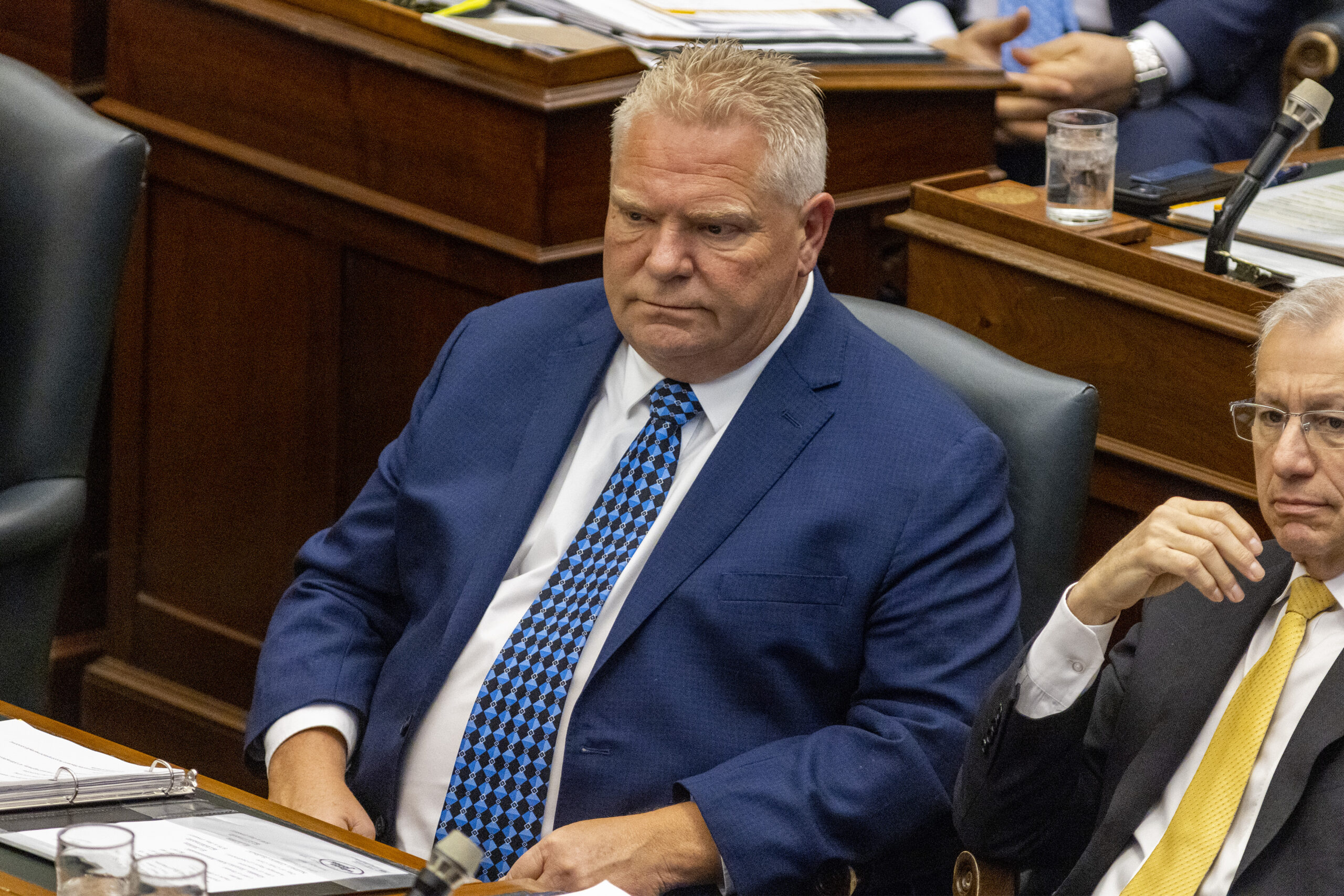
“He was the person many mayors spoke to in regards to municipal files,” Brown wrote. “He was smart and well researched. He knew all the files very well.”
Ryan Amato’s first Ford government role was with then-attorney general Caroline Mulroney as a director of operations and public appointments. He followed her when she was shuffled into the Transportation Ministry and became her director of stakeholder relations, putting him at the table as Mulroney pushed to build two highways through sections of the Greenbelt: the Bradford Bypass and Highway 413. Both became flashpoints for controversy over their environmental impacts, a discussion that only became more heated after investigations by the Toronto Star and National Observer showed a likely spike in land values along both routes would benefit developers with ties to the Progressive Conservatives.
Two of those developers — De Gasperis of TACC Group, an acronym that stands for “The Amazing Construction Company,” and Michael Rice of Rice Group — would later be central to the Greenbelt scandal. Both spoke to Amato at the September 2022 building industry dinner to request protections be removed from their lands.
Amato’s work intersected with De Gasperis again at the Ministry of Transportation when the developer “had some business issues to resolve,” related to how highway ramps could affect a subdivision development, the integrity commissioner’s report said. Amato helped arrange meetings with ministry experts to sort out the problem, the report said.
Amato’s stakeholder work in Mulroney’s office also led to an early encounter with Rice, who told the integrity commissioner he’d met Amato “at a handful of political fundraisers or other events” in that time period — and that Rice’s daughter talked to Amato in spring 2022 to co-ordinate dates for a fundraiser she organized for Mulroney.
Amato told the commissioner he didn’t remember if he’d ever met Rice before the run-up to the Greenbelt changes, the report said. He also told the commissioner he was “briefly in touch” with Rice’s daughter but “had no further involvement” with the fundraiser.
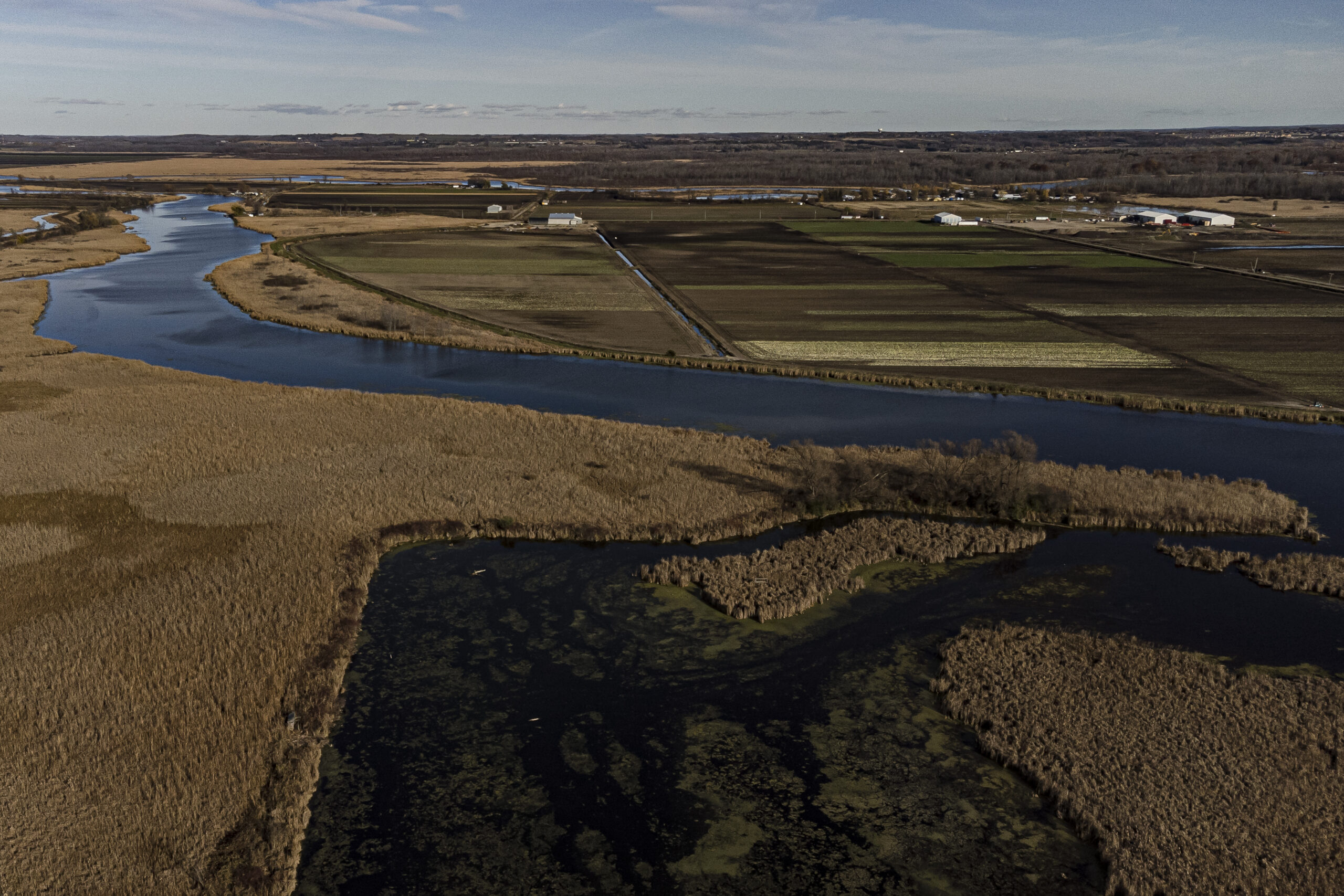
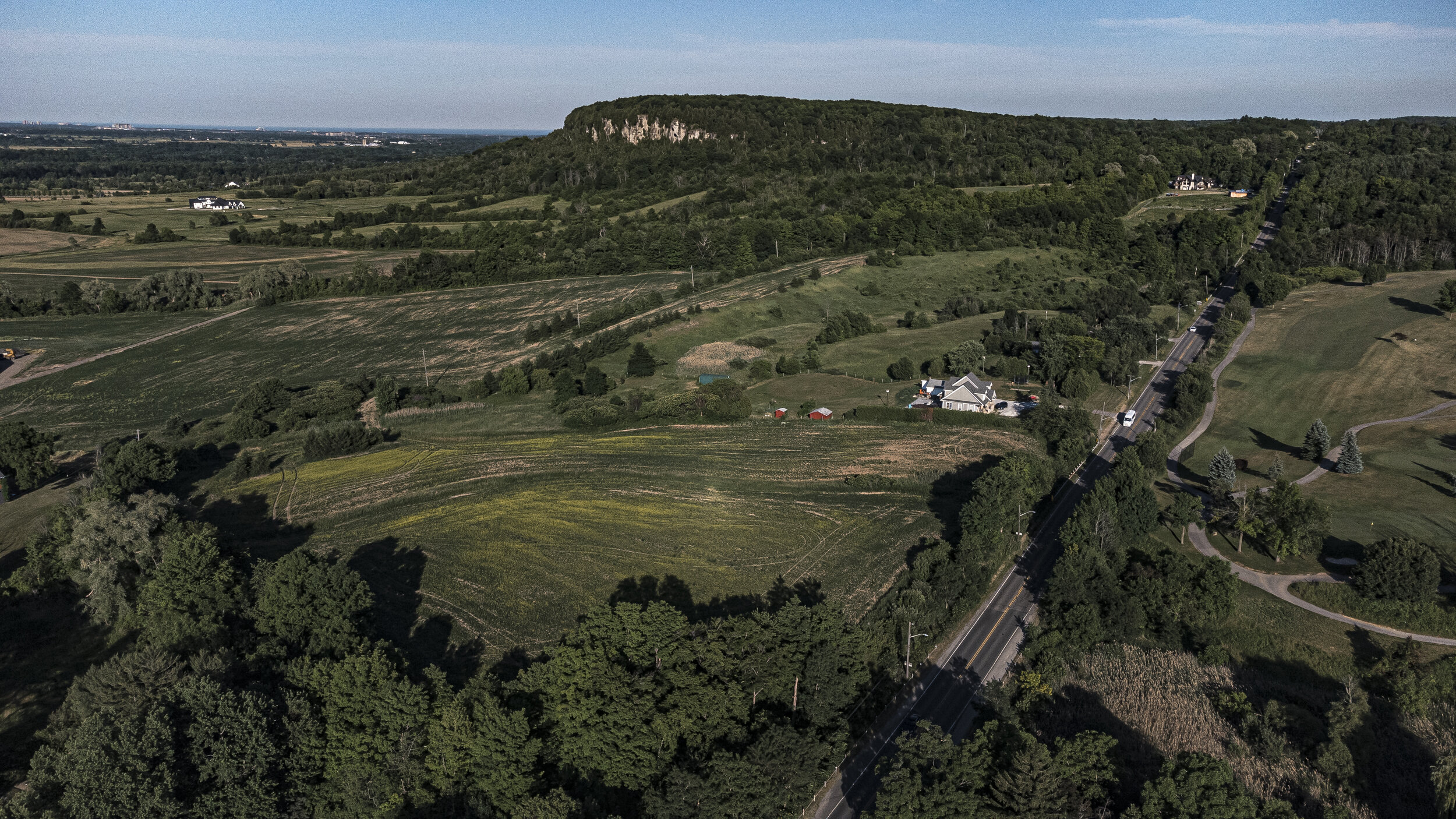
Although Amato no longer works for the Ford government, his personal life remains interwoven with it. He is engaged to Progressive Conservative staffer Aryn Azzopardi, according to four sources close to the government. A photo posted to Ryan Amato’s Facebook page in January 2023 shows two hands woven together, one person’s ring finger adorned with a large gemstone.
Azzopardi is from Etobicoke, the western area of Toronto where Ford lives and where his family’s brand of politics first took off. Her LinkedIn profile shows she got her start in politics at Toronto city hall as a councillor’s assistant, which a municipal document shows was to then-deputy mayor Vincent Crisanti, a long-serving Etobicoke councillor who currently represents the city ward overlapping Ford’s Etobicoke North provincial riding.
Around when Ford became PC Party leader, Azzopardi joined him as an assistant, keeping a similar role after he became premier. In October 2020, Azzopardi became chief of staff to Kinga Surma, then associate minister of transportation, the junior minister to Amato’s then-boss, Mulroney.
In 2021 and 2022, the couple each made the sunshine list. They earned between $106,000 and $120,000 apiece each year.
As Amato worked on a series of changes to Ontario’s housing policy last year, he was also facing the very issue the government says it was trying to tackle through allowing development on parts of the Greenbelt: affordability. Property records show he and Azzopardi took out a $1.04-million mortgage in order to purchase a home on Dec. 19, 2022 for a $1.3-million house on a quiet street in a suburb north of Toronto.
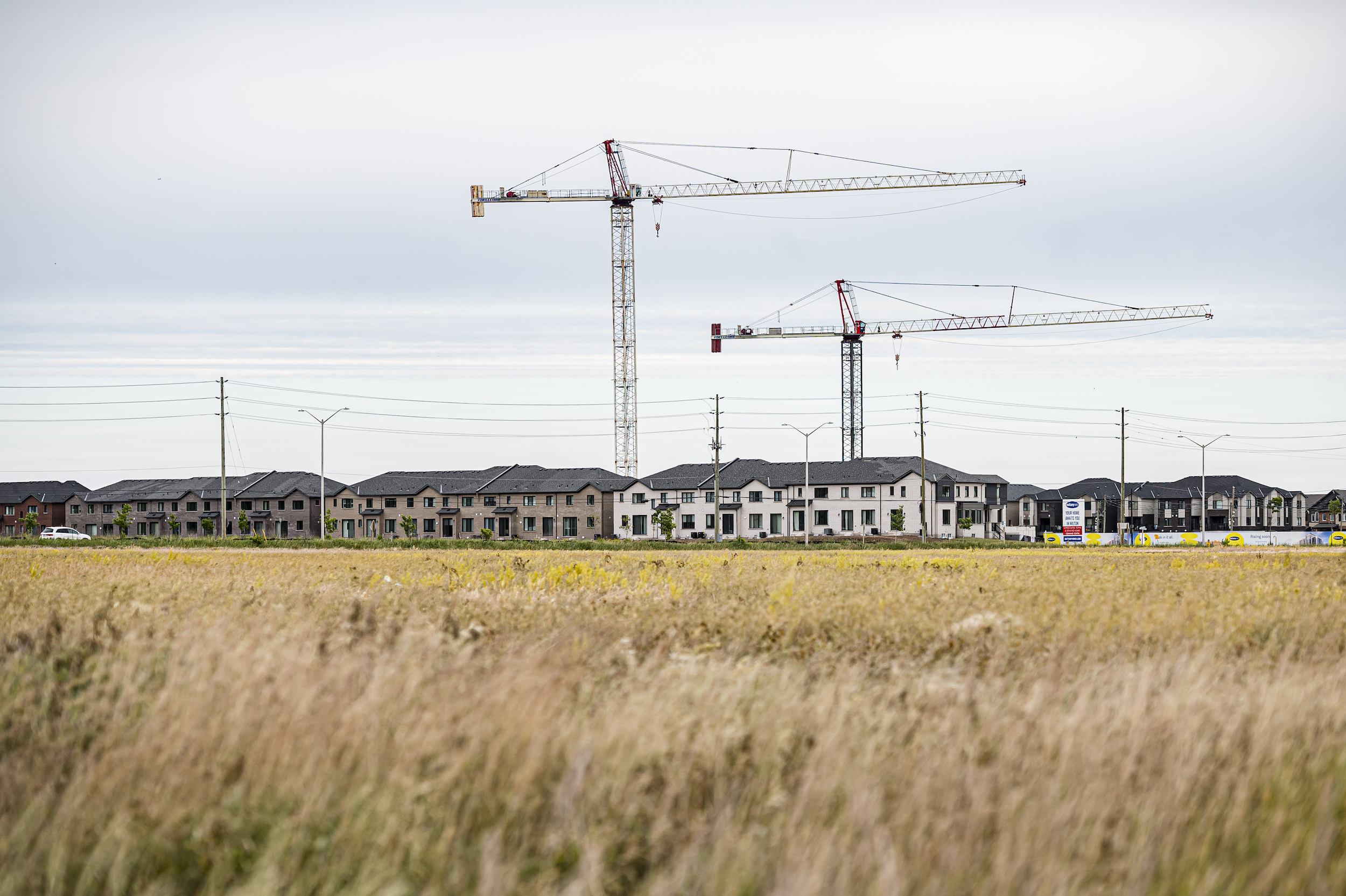
Amato is also listed as the sole owner of a two-bedroom condo in another nearby suburb, bought for $632,000 in June 2020, two years after the building was finished. The unit was listed for rent for $2,900 per month on Nov. 4, 2022, according to a post on the real estate website Zillow that was removed 11 days later.
Amato has laid low since his resignation in August, about a week before the integrity commissioner released his report.
He attended his three days of interviews with the integrity commissioner with two lawyers in tow. Separately, he has retained employment lawyer Kathryn Marshall.
Speaking to Wake earlier this year, Amato seemed to know the Greenbelt changes had the potential to cause blowback. It was “bad politics,” he told Wake, while also saying he thought it was “good public policy,” and that it “would be an election issue” in 2026.
He also expressed some disbelief in how the whole situation unfolded, saying he thought it would be like a “white rabbit I chased for four years that never happened.”
“I thought we were never going to be … like, I am still sitting here in this interview with you guys,” he said to Wake in one conversation, according to the commissioner’s report.
“I’m surprised we are here. Not that you’re doing your … just that the policy went forward.”
—With files from Fatima Syed, The Narwhal
Get the inside scoop on The Narwhal’s environment and climate reporting by signing up for our free newsletter. On March 17, federal Conservative Leader Pierre Poilievre...
Continue reading
An internal document obtained by The Narwhal shows how the natural resources minister was briefed...

Notes made by regulator officers during thousands of inspections that were marked in compliance with...

Racing against time, dwindling habitat and warming waters, scientists are trying to give this little-known...
